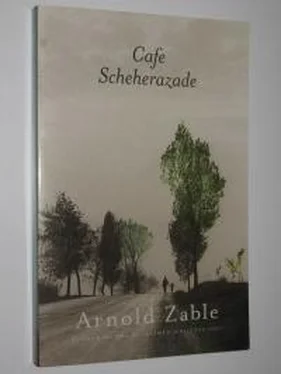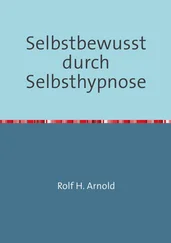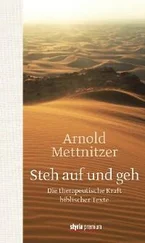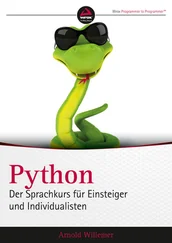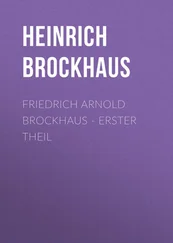Arnold Zable - Cafe Scheherazade
Здесь есть возможность читать онлайн «Arnold Zable - Cafe Scheherazade» весь текст электронной книги совершенно бесплатно (целиком полную версию без сокращений). В некоторых случаях можно слушать аудио, скачать через торрент в формате fb2 и присутствует краткое содержание. Город: Melbourne, Год выпуска: 2001, Издательство: Text Publishing Company, Жанр: Проза, на английском языке. Описание произведения, (предисловие) а так же отзывы посетителей доступны на портале библиотеки ЛибКат.
- Название:Cafe Scheherazade
- Автор:
- Издательство:Text Publishing Company
- Жанр:
- Год:2001
- Город:Melbourne
- ISBN:нет данных
- Рейтинг книги:4 / 5. Голосов: 1
-
Избранное:Добавить в избранное
- Отзывы:
-
Ваша оценка:
- 80
- 1
- 2
- 3
- 4
- 5
Cafe Scheherazade: краткое содержание, описание и аннотация
Предлагаем к чтению аннотацию, описание, краткое содержание или предисловие (зависит от того, что написал сам автор книги «Cafe Scheherazade»). Если вы не нашли необходимую информацию о книге — напишите в комментариях, мы постараемся отыскать её.
Cafe Scheherazade — читать онлайн бесплатно полную книгу (весь текст) целиком
Ниже представлен текст книги, разбитый по страницам. Система сохранения места последней прочитанной страницы, позволяет с удобством читать онлайн бесплатно книгу «Cafe Scheherazade», без необходимости каждый раз заново искать на чём Вы остановились. Поставьте закладку, и сможете в любой момент перейти на страницу, на которой закончили чтение.
Интервал:
Закладка:
"Of all the cities I have known, Shanghai was the best, the most beautiful. You cannot imagine it. My beloved Warsaw was burning.
Krochmalna Street was circled by barbed walls. My loved ones were in gehennim, and in Shanghai I had a good life.
"A Yiddish life. With Yiddish theatre. First-class. With the best actors. From Warsaw and Vilna. From Odessa and Harbin. And
Yiddish clubs. Yiddish radio. Yiddish newspapers: Unzer Leben, Unzer Welt, Dos Wort and Der Yiddisher Almanach."
And the ghetto? The internment camps? The bombings?
"Of course, my dear Martin, after Pearl Harbor, it all changed.
Of course we were squashed into Hongkew. Yes, it is true, we could be beaten up when we queued for a pass. Hundreds died of starvation. Of typhus. Of cholera. Of malaria and meshugas.
"Of course I saw the bombings. I was in the street at the time. I saw it all. I saw the planes swooping over Hongkew, and people diving into the gutters. I heard the bombs whistling as they hurtled down. I saw the corpses lying on the road, with flies crawling over their wounds. I could smell the bloated bodies in the heat. I saw people frantically searching for their 142 loved ones. I saw dismembered coolies slumped against their mangled rickshaws. I saw it all.
"Yet somehow, for me, Shanghai was a beautiful life. That is how
I remember it. What do you want me to say? That I am ashamed?
That I should not have enjoyed myself when I had the chance? If not for Mao I would have stayed. Even at the worst of times I still loved it. I knew how to get by. During my six weeks, en route, in Kobe, I sold the diamonds I had smuggled from Vilna; and I arrived in Shanghai with cash in hand.
"In Shanghai there were millionaires, Sephardic Jews. Their ancestors had lived for centuries in Baghdad. They sailed to
Shanghai like Sinbad of the Arabian Nights. They lived in mansions. They ran shipping lines, owned cotton mills, managed banks. They took me to nightclubs and cabarets. We drank whisky.
We sipped expensive liqueurs. And all this while my Warsaw was burning. All this while my family was in gehennim. It's a meshugene velt. What can I say?
"In Shanghai there were Jews from the entire world. From Bombay.
Thessaloniki, Persia and Cochin. Magnates! They owned factories, warehouses, real estate. You know why they call it `real estate`?
Because you can touch it; because it is not a fantasy, a grandmother's tale.
"I met the famous magnate, Sir Victor Sassoon, in the lobby of the Hotel Cathay. He was a great philanthropist. He walked with a limp, and he showered money on all who came!
"It was such a pleasure to stroll in the carpeted foyer. I would loiter for hours in a magnificent hall that overlooked the 143
Whangpoo. Even the elevators were like palace rooms. It was a delight to press the buttons, to wait for the lifts to arrive. I rode them up and down as if I was riding a horse on a carousel.
I lifted my hat to the wealthy merchants who stepped in. I greeted them with a wink. A smile. And I made conversation.
"Small talk leads to big talk, to contracts and deals. This is how I met the millionaire, Baruch. His grand-daughter was Esther
Williams, the actress. From Hollywood. That's what he told me.
Perhaps he was just boasting. Or perhaps I have got it all mixed up.
`I met Kadourie and Hardoon. Or perhaps I heard stories about
Kadourie and Hardoon. I can't remember which was which. Kadourie erected a beautiful school for refugees, where it was needed most, in that rat hole called Hongkew. He was a man with a golden heart. I am sure he sits in gan eiden, serenaded by angels on all sides!
"Hardoon too had a heart of gold. He had a Chinese wife. He adopted children from many lands. He built a synagogue in honour of his father, and called it the Beth Aharon, the House of Aron.
And when the refugees came, he gave it to them as a gift. He opened its doors to the boys of the Mir Yeshiva. Can you imagine it? A whole yeshiva, from the Polish town of Mir, a mere shtetl, made it all the way to Shanghai.
"Yes. This is how it was! They fled from Mir to Vilna, hundreds of rabbis and yeshiva boys. They ran from Vilna to northern
Lithuania where they lived secretly in villages until Chiune
Sugihara helped them along. They travelled from Vilna 144 to Vladivostok, from Kobe to Shanghai. A complete school of
Talmudic studies in a caravanserai! With scholars who tugged at their side-locks, and teenage boys who scratched their itchy cheeks. They rushed about in black-brimmed hats. Their jackets flapped in the wind. Even in the summer they hurried through the streets of Hongkew in their black coats to the Beth Aharon, to study and pray.
"I prayed there too. I can still see it before my eyes. It had an arched doorway and arched windows, high white ceilings and a white dome. It looked like the great synagogues of old.
"The Russian Jews too were great philanthropists. They had lived in Shanghai for many years and they knew how to get by. My foolish child, to be able to give, you must be able to receive.
This is a golden rule. "The Russians managed nightclubs, restaurants, cinemas and cabarets. I would often stroll in the
Russian quarter, along Avenue Joffre, in the French concession.
Little Moscow, it was called. It was crowded with people speaking in Slavic tongues. Naturally I felt at home. I sniffed the air and soon became a regular customer at the Balalaika, the Kavkas and the Renaissance. Little Moscow was a paradise of borscht and black bread, and stores that sold everything from Siberian furs to samovars!
"The whole world was in Shanghai. Der gantzer velt. As Mendel
Mandelbaum used to say:
"Die velt is ful mit veltelekh, Un men shpilt zikh in beheltelekh"
144
"That's how it is. The world is full of little worlds, and we are all playing hide-and-seek. This is what Mendel Mandelbaum taught me. This is what I learnt on Krochmalna Street, and in the tenement courtyards of old Warsaw. And this is why Shanghai was so familiar to me. It brought back childhood memories of peddlers selling smoked herring and bagels; and of geese and pigs being driven to market through narrow lanes. It was a wonderful mess, a balagan. As the boat approached the busy wharves, I rubbed my hands with glee. I fell in love at first sight. I wanted to leap into the city as soon the boat pulled up to the port.
"What can I say? In Shanghai I had a beautiful life. I lived with other single men in a dormitory, in Hongkew. Until Pearl Harbor we could roam wherever we wished. I walked the streets of the
French concession, and sat in Viennese cafes. I sipped coffee with the boys from Berlin. And with the boys from Prague, Siberia and Harbin. Each group had their own cafe, their own little world. Mendel Mandelbaum was right. The whole world is full of little worlds, and we are playing hide-and-seek.
"And wherever I met people I pencilled in their names. To prosper you must have an address book with you at all times. If you wish to make a living, you must always be prepared!"
Yossel is in full flight. His gold bow tie glitters in the late afternoon light. He orders a glass of borscht. The drink complements his tales, for he is talking of Russian philanthropists. He is singing the praises of Boris Salamonik.
146
"My foolish child, to have money is the greatest thing. Even in times of danger some people knew how to give, how to be a mensch, a true human being. Boris was married to a tsigeiner. He helped everyone, the Gypsies, the Chinese, even the yeshiva boys from
Mir. Salamonik gave them thousands of dollars to print the
Talmud. They had no books for their studies, so Boris helped them.
"And he helped me. He dealt in mink. He exported it to America.
The best mink. I have photos. I carry them with me in my wallet.
Читать дальшеИнтервал:
Закладка:
Похожие книги на «Cafe Scheherazade»
Представляем Вашему вниманию похожие книги на «Cafe Scheherazade» списком для выбора. Мы отобрали схожую по названию и смыслу литературу в надежде предоставить читателям больше вариантов отыскать новые, интересные, ещё непрочитанные произведения.
Обсуждение, отзывы о книге «Cafe Scheherazade» и просто собственные мнения читателей. Оставьте ваши комментарии, напишите, что Вы думаете о произведении, его смысле или главных героях. Укажите что конкретно понравилось, а что нет, и почему Вы так считаете.
